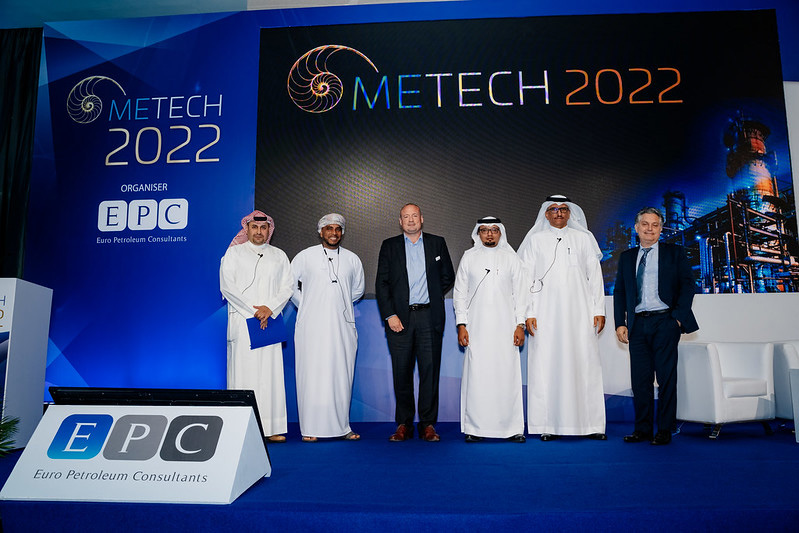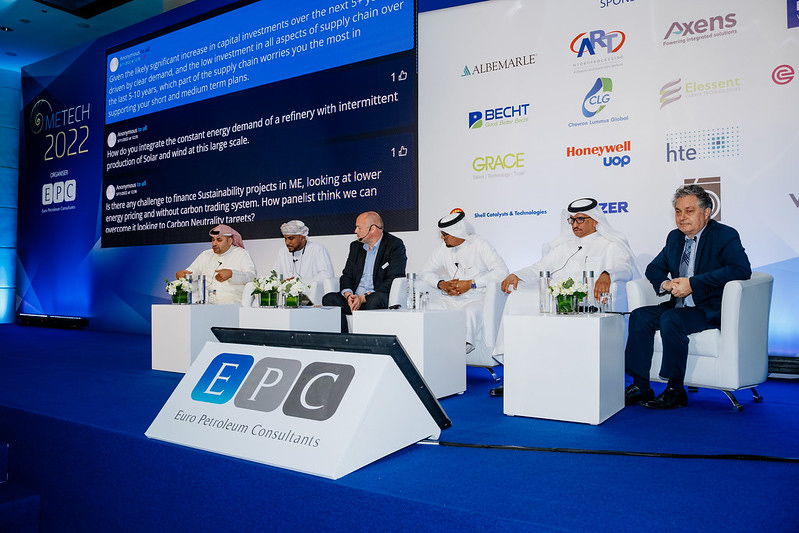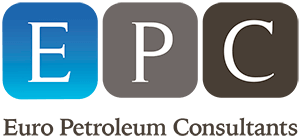Over the coming weeks we will be reflecting on the insightful and interactive panel discussions from #METECH, the Middle Middle East Technology Forum for Refining & Petrochemicals, that took place from 10-12 May 2022 at the Address Dubai Marina Hotel, Dubai, UAE.
Daniel Carter, Vice President, Decarbonisation & New Energies, Wood moderated a distinguished line-up of panelists from the Middle East region’s key producers - discussing strategies that are being deployed for future sustainability.

(L-R): Abdullah Fahad Al Osaimi, KIPIC - Khalid Al Asmi, OQ - Daniel Carter, WOOD - Mohammed Al Hazmi, SABIC - Saeed Al-Hajri, SATORP and David Marion, TOTALENERGIES
The panel began discussing their top priorities toward sustainability. In Kuwait, KPC and its subsidiaries are focused on setting the targets by first, hiring consultants, assessing their current assets, and looking at what sort of mitigation should be done. It is vital to know what kind of opportunities need to be developed in terms of decarbonisation and adapt initiatives for those existing projects to cope with the new development. It should be noted that not all companies are moving at the same pace in terms of sustainability. We have seen some are ahead, some are still in the development stage.
It is vital to know what kind of opportunities need to be developed in terms of decarbonisation and adapt initiatives for those existing projects to cope with the new development
For SATORP, the priority is no different than for other refineries – looking at cost optimization and performance improvement are just some of the aspects that SATORP is focusing on. In addition to Saudi Aramco & Total’s existing sustainability programs, SATORP has also implemented its strategies, programs on sustainability, and transformation initiatives which are built on the experience of their shareholders, plus ensuring that the company is compliant with government regulations as well.
OQ, in Oman, as an integrated refining and petrochemicals company, has recently launched its new pillar called ‘Alternative Energy’. As the world is pushing towards net-zero by 2050, OQ is no different and is also looking to meet this objective. There are various projects that OQ has embarked on and one of these is the Duqm Green Hydrogen Project (in cooperation with DEME). Upstream, OQ has partners working on capturing carbon opportunities and different solutions.
From the perspective of a producer and a technology-led company, SABIC’s priorities are achieving Carbon neutrality and reducing their carbon footprint. As part of the Saudi Green Initiatives, SABIC has a clear roadmap targeting carbon neutrality in the future and working with its partners to reach carbon neutrality by 2050. It is important to look at current assets and how to improve energy efficiencies and reliability driven by Saudi energy efficiency program goals.
Prioritising SABIC’s recycling roadmap is the key to achieving its ultimate goal of zero measure by 2050
Looking to the long term, SABIC has several initiatives already in the pipeline, one of these is electrification. SABIC, BASF, and Linde as an engineering arm have signed a joint agreement to develop and demonstrate solutions for electrically heated steam cracker furnaces and are evaluating the construction of a multi-megawatt demonstration plant at BASF's Ludwigshafen site in Germany, to start up in 2023. Another focus is carbon capture utilisation and sequestration (CCUS). SABIC has currently the largest neutralization, purification, and reuse facility in their downstream for the methanol and urea, up to around 500 KTA per year. It was also announced that SABIC will run its new site in Cartagena, Spain fully operated by a solar farm.
Prioritising SABIC’s recycling roadmap is the key to achieving its ultimate goal of zero measure by 2050.

ME-TECH 2022: Producer panel discussing downstream future sustainability
It was also pointed out by one of the panelists that sustainability is not just about CO2 but far more than that. Safety, for example, is highly important - Safety is the first of sustainability, no injury and of course no fatalities, that is how sustainable a company or a project is.
Safety is the first of sustainability, no injury and of course no fatalities, that is how sustainable a company or a project is
The Middle East is well known for its sustainable water programs. TotalEnergies has signed an agreement with Iraq to help them improve water management. The construction of a large-scale seawater treatment unit to increase water injection capacities in southern Iraq fields without increasing water withdrawals as the country is currently facing a water-stress situation. This water injection is required to maintain pressure in several fields and as such will help optimizing the production of the natural resources in the Basra region.
For TotalEnergies, hydrogen is another key sector – they are moving towards being a pioneer in the field of hydrogen. Also having sub-products that are less carbon-intensive is vital, for example; sustainable aviation fuel (SAF).
